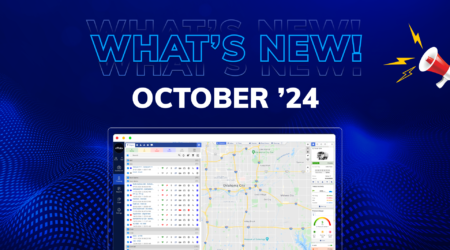GPS Systems for Car: A Comprehensive Overview
In today’s fast-paced world, navigating through the streets has been made significantly easier thanks to GPS systems for cars. This innovative technology, once a luxury, has become a necessity for drivers everywhere. Whether you’re exploring unfamiliar territories or simply commuting to work, a GPS system in your car ensures you reach your destination efficiently and safely. Beyond guiding you from point A to point B, these systems offer numerous benefits, from traffic alerts to saving on fuel by providing the most efficient routes. Let’s dive deeper into the world of car GPS systems, exploring how they’ve revolutionized driving experiences.
Understanding GPS Systems for Cars
GPS systems for cars use the Global Positioning System (GPS) to offer precise location and navigation information. A network of satellites orbiting the Earth sends signals to the GPS device in your car, determining your exact position, speed, and direction. This technology has evolved significantly since its introduction. Initially developed for military use, it quickly found its way into the commercial sector, transforming how we navigate on the road.
Early car GPS systems were basic, providing simple point-to-point navigation on rudimentary maps. However, as technology advanced, these systems became more sophisticated. Today’s GPS devices boast high-resolution displays, real-time traffic updates, and even integration with smartphones and in-car entertainment systems. The evolution of GPS technology has not only improved accuracy but also made navigation more interactive and user-friendly.
The introduction of GPS systems has significantly impacted driving, making it more convenient and safer. No longer do drivers need to rely on paper maps or stop to ask for directions. With real-time navigation at their fingertips, getting lost has become a thing of the past. Moreover, modern GPS systems offer more than just directions. They provide traffic alerts, suggest alternative routes to avoid congestion, and even locate points of interest like gas stations, restaurants, and hotels. This level of convenience and efficiency is why GPS systems have become an indispensable tool for drivers.
Key Features of Modern GPS Systems for Cars
Modern GPS systems for cars are a far cry from their early ancestors. They are equipped with a plethora of features designed to make navigation effortless, safer, and more interactive. Here are some of the standout features:
- Real-Time Traffic Updates: Perhaps one of the most valuable features, real-time traffic updates help drivers avoid congestion, road closures, and accidents. By analyzing traffic flow, these systems can suggest alternate routes, saving time and reducing fuel consumption.
- Voice Commands and Hands-Free Operation: Modern systems allow drivers to operate their GPS with voice commands, minimizing distractions and making it safer to navigate while driving. This hands-free operation ensures that the driver’s eyes remain on the road.
- Connectivity with Smartphones: Many GPS systems now offer seamless integration with smartphones, allowing for the synchronization of contacts, music, and even apps. This means drivers can access their favorite navigation apps or music playlists directly through the car’s GPS system.
- Lane Guidance and Junction View: Advanced lane guidance systems help drivers understand exactly which lane to be in during complex highway interchanges or exits. Coupled with junction view, which provides a visual representation of the junction, navigating tricky intersections becomes much easier.
- Speed Limit Indicators and Safety Alerts: Keeping drivers informed of the speed limit and alerting them to safety cameras or school zones, modern GPS systems contribute to safer driving habits.
These features not only enhance the navigation experience but also contribute significantly to driving safety and convenience, illustrating the evolution of GPS technology from simple navigation aids to comprehensive driving assistants.
Types of GPS Systems for Cars
When it comes to choosing a GPS system for your car, there are several options, each with its own set of advantages and disadvantages. Here’s a look at the main types:
- Built-in GPS Systems: Integrated into the car’s dashboard, these offer a seamless navigation experience with large, clear displays. While they’re convenient and aesthetically pleasing, they can be expensive to update and may not offer the same level of flexibility as portable units.
- Portable GPS Units: These devices can be mounted on the dashboard or windshield and offer the advantage of being transferable between vehicles. They’re typically more affordable than built-in systems and easier to update. However, they can be less stable and might obstruct some view when mounted.
- Smartphone GPS Apps: With the advent of smartphones, GPS apps have become a popular alternative to traditional GPS devices. They’re updated regularly, often free or low-cost, and offer many of the same features as standalone units. The downside is that they can drain your phone’s battery quickly and may use a significant amount of data.
Each type of GPS system has its place, depending on the user’s needs, budget, and preferences. Understanding the differences can help drivers choose the most suitable option for their navigation needs.
How to Choose the Right GPS System for Your Car
Selecting the right GPS system for your car involves considering several factors:
- Compatibility with Your Vehicle: Ensure the GPS system you choose is compatible with your car, especially if you’re opting for a built-in system.
- Your Navigation Needs: Consider how often and for what purposes you need navigation assistance. Frequent travelers might benefit from more advanced features, while occasional users might prefer a basic, easy-to-use unit.
- Budget: GPS systems range in price from relatively inexpensive smartphone apps to high-end built-in systems. Determine your budget and find a system that offers the best value for your needs.
- Update Frequency and Cost: Navigation data changes regularly, so it’s important to choose a system that offers easy and affordable updates.
- Ease of Use: Look for a GPS system with a user-friendly interface. Test different models to see which one you find most intuitive.
Installation and Maintenance Tips
Installing a GPS system in your car varies by the type of system. Built-in systems should ideally be installed by professionals to ensure they’re integrated correctly into your car’s electrical and audio systems. Portable units and smartphone apps, on the other hand, are easy to install and set up by yourself.
Maintenance tips for keeping your GPS system in top condition include regularly updating the software and maps, cleaning the screen and unit to ensure clear visibility and responsiveness, and securely mounting portable units to prevent damage.
Conclusion
GPS systems for cars have transformed how we navigate, making driving more efficient, safer, and enjoyable. From the basic navigational aid of the past to today’s sophisticated devices with real-time traffic updates, voice commands, and smartphone connectivity, the evolution of GPS technology is impressive. Whether you opt for a built-in system, a portable unit, or a smartphone app, choosing the right GPS system for your car is crucial for a seamless navigation experience. Consider your needs, budget, and the specific features that will enhance your driving before making a decision. With the right GPS system, the road ahead looks clearer, safer, and more connected than ever before.





